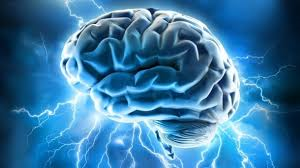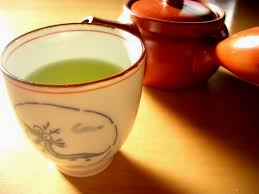Contents
What is theanine?
Also known as gamma-ethylamino-L-glutamic acid, theanine is a non-essential amino acid found in plants and fungi. Classed as a non-dietary amino acid, it is similar to glutamine in structure and its products; glutamate and GABA.
The most common dietary source of L-theanine is tea. Green tea is particularly rich in theanine.
Theanine health benefits
Relaxation
One of the most common uses for this amino acid is to decrease stress and anxiety. Most research assessing the effects of theanine on neurological function has been animal based. These studies have found that this compound can affect the serotonin and dopamine levels in the brain, creating an anxiolytic effect1, 2.
Human based studies have identified elevated alpha brain wave activity and associated alertness following administration of this amino acid3, 4. Essentially, theanine is a compound that stimulates relaxation but without sedation.
A Japanese study found that college students experienced less anxiety after oral doses of L-theanine5. Also, participants prescribed this amino acid had less elevated blood pressure after exposure to physical or psychological stress compared with those taking the placebo.
Another Japanese study reported similar findings. In this research, graduate students receiving theanine supplementation responded more favourably under stressful conditions compared with those student taking a placebo 6.
Canadian scientists found that theanine administration could help to reduce the severity of some sleep disorders in boys with attention-deficit hyperactivity disorder (ADHD)7. L-theanine may also have a positive role in anti-psychotic treatments for patients suffering from schizophrenia8.
It is important to note that the above mentioned human studies have been short-term and with a small participant base. While the results are positive, more research is necessary. Larger, long-term studies without methodological weaknesses will help to provide a better insight into the potential anti-stress and anxiety affects of theanine.
Cardiovascular health
Elevated blood pressure and heart rate are not good signs for cardiovascular health. People with these symptoms have an increased risk of heart attack, stroke and coronary artery disease.
It is well known that stress can increase blood pressure. In response to stress, the nervous system releases high concentrations of vasoconstricting hormones that elevate blood pressure9, 10.
The anti-stress effects of L-theanine on the autonomic nervous system may therefore help to decrease blood pressure. Animal studies have shown that hypertensive rats respond positively to theanine supplementation, successfully reducing their blood pressure11, 12.
Other studies have shown that this amino acid can help to reduce elevated heart rates in humans13, 14, further supporting better cardiovascular health.
Research shows that L-theanine can increase nitric oxide production in endothelial cells15. This improves blood flow throughout the body and is important for reducing the risk of stroke. With healthy blood circulation, the risk of a sudden blood clot (ischemia) is significantly reduced.
L-theanine supplementation may help to improve cardiovascular health by supporting healthy blood pressure, heart rate and blood flow. Therefore, this amino acid could have a role to play in reducing the risk of heart disease, stroke and heart attacks.
Recommended dosage
People who drink tea regularly, especially green tea, will have L-theanine in their diet. Generally, a typical cup of black tea will have around 6 mg of theanine. A cup of green tea will have around 8 mg of this amino acid.
Studies report an anti-anxiety effect after single doses of L-theanine of between 200 to 250 mg per day. However, drinking 30 plus cups of tea daily is not recommended! Anyone considering increasing their theanine intake should do so using a quality supplement. It’s important not to exceed 1200 mg per day.
Summary
The amino acid theanine is found in tea. Many studies indicate that this compound can reduce anxiety. It does this by blocking the brain’s glutamate receptors and stimulating the production of the relaxing neurotransmitter GABA.
Unlike prescription anti-anxiety drugs, this amino acid can reduce stress without impairing motor behaviour or inducing drowsiness. Instead, L-theanine seems to enhance alertness and improves attention.
In addition to reducing anxiety, there is growing interest in the use of L-theanine to improve cognitive function and cardiovascular health. However, more studies are necessary.
It is important to consult with your doctor before taking theanine supplements. This will reduce your risk of adverse reactions due to underlying health problems such as low blood pressure (hypotension).
References
- Yokogoshi, H. et. al. (1998).Effect of theanine, r-glutamylethylamide, on brain monoamines and striatal dopamine release in conscious rats. Neurochemical Research. Volume 23, Issue 5, (pp. 667-673). ↩
- Yamada, T. et.al (2005). Effects of theanine, r-glutamylethylamide, on neurotransmitter release and its relationship with glutamic acid neurotransmission. Nutritional Neuroscience. Volume 8, Issue 4, (pp. 219-226). ↩
- Juneja, L. et. al. 1999). L-theanine–a unique amino acid of green tea and its relaxation effect in humans. Trends in Food Science and Technol. Volume 10, Issues 6-, (pp. 199-204.) ↩
- Gomez-Ramirez, M. et. al. (2007). The deployment of intersensory selective attention: a high-density electrical mapping study of the effects of theanine. Clinical Neuropharmacology. Volume 30, Issue 1, (pp. 25-38.) ↩
- Yoto, A. et.al. (2012). Effects of L-theanine or caffeine intake on changes in blood pressure under physical and psychological stresses. Journal of Physiological Anthropology. Volume 31, Issue 28, doi: 10.1186/1880-6805-31-28. ↩
- Unno, K. et. al. (2013). Anti-stress effect of theanine on students during pharmacy practice: positive correlation among salivary α-amylase activity, trait anxiety and subjective stress. Pharmacology, Biochemistry, and Behaviour. Volume 111, (pp. 128-35). ↩
- Lyon, M., Kapoor, M. and Juneja, L. (2011). The effects of L-theanine (Suntheanine®) on objective sleep quality in boys with attention deficit hyperactivity disorder (ADHD): a randomized, double-blind, placebo-controlled clinical trial. Alternative medicine review: A journal of clinical therapeutics. Volume 16, Issue 4, (pp. 348-54). ↩
- Ritsner, M. et. al. (2011). L-theanine relieves positive, activation, and anxiety symptoms in patients with schizophrenia and schizoaffective disorder: an 8-week, randomized, double-blind, placebo-controlled, 2-center study. Journal of Clinical Psychiatry. Volume 72, Issue 1, (pp. 34-42). ↩
- Kulkarni, S. et.al. (1998). Stress and hypertension. WMI: Official Publication of the State Medical Society of Wisconsin. Volume 97, Issue 11, (pp. 34-38.) ↩
- Matthews, K. et. al. (2004). Blood pressure reactivity to psychological stress predicts hypertension in the CARDIA study. Circulation. Volume 110, (pp. 74-78). ↩
- Yokogoshi, H. et. al. (2005). Reduction effect of theanine on blood pressure and brain 5-hydroxyindoles in spontaneously hypertensive rats. Bioscience, Biotechnology and Biochemistry. Volume 59, Issue 4, (pp. 615-618). ↩
- Yokogoshi, H. and Kobayashi, M. (1998). Hypotensive effect of γ-glutamylethylamide in spontaneously hypertensive rats. Life Sciences. Volume 62, Issue 12, (pp.1065-1068). ↩
- Higashiyama, A. et. al. (2011). Effects of L-theanine on attention and reaction time response. Journal of Functional Foods. Volume 3, Issue 3, (pp. 171-8). ↩
- Kimura, K. et. al. (2006). L-theanine reduces psychological and physiological stress responses. Biological Psychology. Volume 74, Issue 1, (pp. 39-45). ↩
- Siamwala, J. et al. (2013). L-theanine promotes nitric oxide production in endothelial cells through eNOS phosphorylation. Journal of Nutritional Biochemistry. Volume 24, Issue 3, (pp. 595-605). ↩




